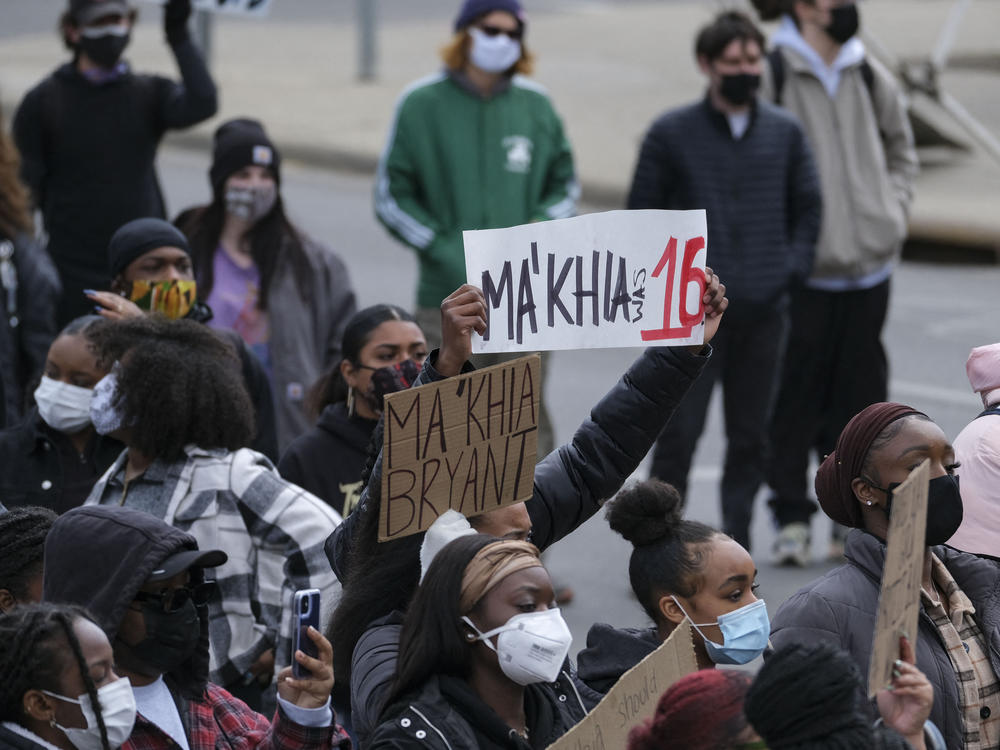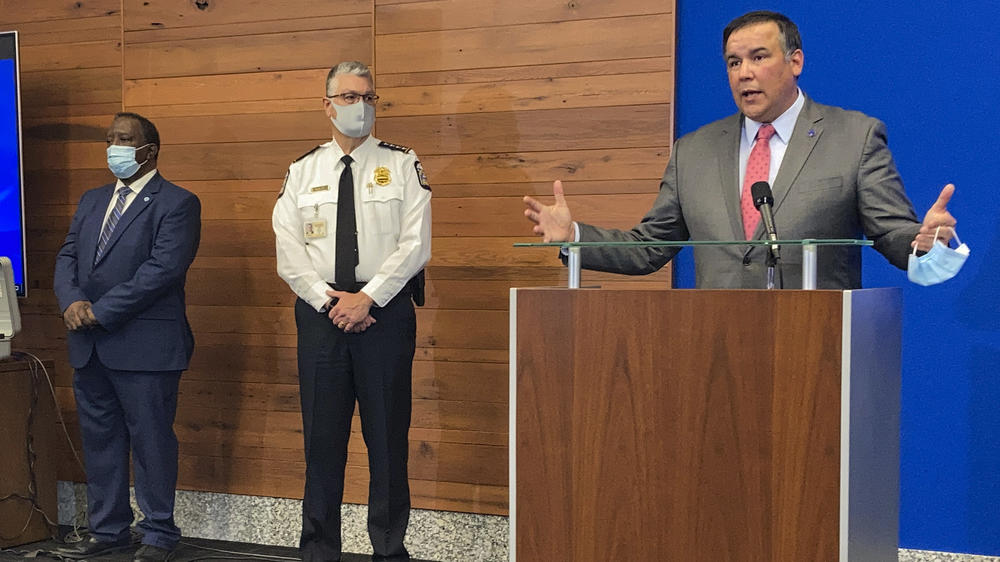Section Branding
Header Content
Columbus Mayor Requests DOJ Review Of Racial Bias In Police Force
Primary Content
Columbus Mayor Andrew Ginther has asked the U.S. Department of Justice for a formal review of racial bias in the city's police force.
Ginther and Columbus City Attorney Zach Klein spoke with Justice Department Acting Deputy Director Robert Chapman about the city's police on Monday.
In a letter to Chapman, Ginther and Klein invite the DOJ to review the city's police operations, identify "any and all racial biases in policing efforts," and offer findings and solutions for reform.
"Columbus has made significant progress in recent years in police reform," they write, pointing to an external audit of the Division of Police and a community-driven review of police practices. "Still, despite steadfast efforts to advance change, the City has been met with fierce opposition from leadership within the Columbus Division of Police. This is not about one particular officer, policy, or incident; rather, this is about reforming the entire institution of policing in Columbus."
The request comes a week after an officer fatally shot 16-year-old Ma'Khia Bryant. Columbus police say officer Nicholas Reardon fired his weapon after being called to a reported disturbance. Footage of the incident showed Bryant holding what looks to be a knife, and Reardon firing four shots at her almost immediately after arriving on the scene.
Ginther and Klein pledged to welcome the DOJ and work cooperatively on police reform. They say they understand that if the Justice Department finds problems and other remedies don't work, the DOJ has the authority to enforce change through federal court orders.
"We want to be partners with the DOJ to bring about meaningful, sustainable and significant reforms. Not only is the elected leadership in the City of Columbus aligned with this request, but the residents of Columbus unquestionably share the same goal," Ginther and Klein write.
They asked for the formal engagement of the Justice Department to begin within the next 30 days.
Despite considerable efforts at police reform by Ginther, a Democrat, since taking office in 2016, progress appears to be scant.
Since January 2020, eight people have been killed in shootings involving Columbus and Franklin County police officers, according to The Columbus Dispatch.
A study released in February found that Franklin County has among the highest rates of deadly law enforcement shootings in Ohio, and one of the highest in the U.S.
"Franklin County is home to one-fifth, or 20% of the state's Black population, but the county accounts for one-third, or 33%, of deaths of African Americans shot by law enforcement in Ohio. Meanwhile Cuyahoga County (Cleveland), which is 25% Black, accounts for only 16% of African Americans fatally shot by law enforcement. Hamilton County (Cincinnati) is 14% Black by population, but accounts for 11% of African Americans fatally shot by law enforcement," the Dispatch reported.
An after-hours request for comment from the president of the Fraternal Order of Police Capital City Lodge No. 9 was not immediately returned.
Copyright 2021 NPR. To see more, visit https://www.npr.org.


